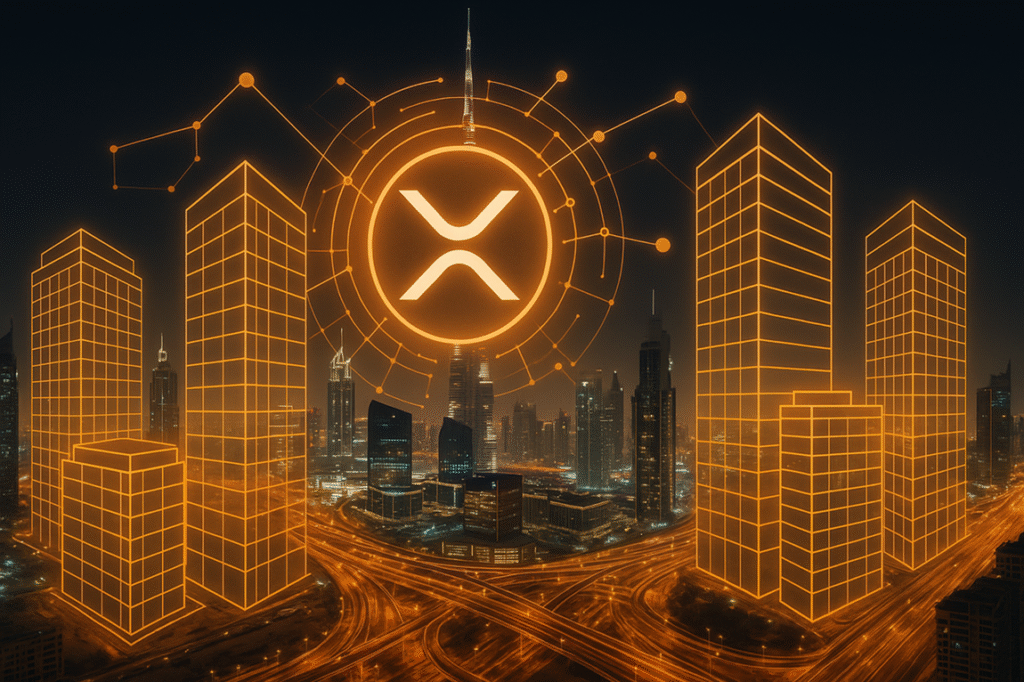In the ever-evolving world of real estate and digital finance, Dubai is making waves with an innovative approach that promises to revolutionize property transactions. By leveraging cutting-edge blockchain technology, the city is set to become a pioneer in the digital transformation of real estate. Central to this transformation is the use of the XRP Ledger, a high-performance blockchain, which is now being integrated into property title deed tokenization. This initiative not only enhances the efficiency of property dealing in Dubai but also positions the city as a beacon of innovation in the global real estate market.
Dubai’s Bold Move to Digitize Real Estate with XRP Ledger
Innovative Integration of Blockchain Technology
Dubai’s Land Department (DLD) has embarked on an ambitious project to tokenize property title deeds, setting a precedent in the Middle East. This groundbreaking initiative, conducted in collaboration with Ctrl Alt, a specialist in tokenization, involves the utilization of the XRP Ledger (XRPL) as the foundational settlement layer. The aim is to seamlessly synchronize on-chain deed tokens with Dubai’s traditional land registry, paving the way for a legally compliant and efficient real estate transaction system. This move is a part of the DLD’s Real Estate Evolution Space Initiative (REES), which aims to modernize and streamline property transactions.
Advantages of Using the XRP Ledger
Ripple’s developer team has applauded Dubai’s decision, emphasizing that the XRPL’s stability and reliability over the past decade made it an ideal choice for this monumental task. Known for processing nearly two million transactions per day with minimal fees and rapid finality, the XRPL is perfectly suited to manage fractional real estate markets while ensuring an optimal user experience.
Tokenization Process and Economic Impact
Ctrl Alt has successfully integrated its technology with DLD’s databases, allowing for real-time property transfers that are legally binding. Each tokenized deed represents a fractional economic interest in the respective property. During the pilot phase, UAE-ID holders can participate with a minimum investment of AED 2,000 (approximately US$545), with transactions settled in dirhams instead of cryptocurrencies. The ambitious goal is to issue AED 60 billion ($16 billion) in fractional-deeds by 2033, which would account for about seven percent of all property transactions projected for that year.
Strategic Goals and Regulatory Oversight
This strategic initiative aligns with Dubai’s Real Estate Sector Strategy 2033 and the Dubai Economic Agenda (D33), both of which emphasize digitization to attract investment and enhance regulatory frameworks. Oversight is dual-layered, with DLD managing the physical properties and the Virtual Assets Regulatory Authority (VARA) licensing Ctrl Alt to ensure compliance with rigorous provenance standards.
Benefits and Potential Risks for Investors
While the integration offers unprecedented opportunities for wider participation in real estate investments, it is not without risks. Ctrl Alt advises potential investors about the inherent volatility of virtual assets and the lack of conventional investor protection mechanisms in this domain. Nevertheless, if successful, this project could position Dubai as the first jurisdiction to maintain blockchain-based records for property transfers, significantly reducing settlement timeframes and increasing market transparency.
FAQs
What role does the XRP Ledger play in Dubai’s real estate tokenization?
The XRP Ledger acts as the settlement layer for Dubai’s tokenized real estate initiative, providing a fast, reliable, and low-cost infrastructure for processing property transactions. Its integration with Dubai’s traditional land registry allows for legally compliant and more efficient property dealings.
How does fractional property ownership work in this system?
Fractional property ownership allows investors to own a portion of a property by purchasing tokenized deeds. Each token represents a share of the property, and investors can engage in the market with relatively small initial investments. This system widens access to real estate investment for a broader audience.
What are the risks associated with tokenized real estate investments?
While tokenized real estate offers new opportunities, it also comes with risks such as market volatility and a lack of traditional investor protections. Potential investors should conduct thorough research and consider these factors before participating.
Is Dubai’s real estate tokenization initiative a model for other regions?
Yes, if successful, Dubai’s initiative could serve as a prototype for other regions aiming to enhance real estate transactions through digital transformation. The project’s success would demonstrate the viability of blockchain technology in streamlining and securing property markets globally.
As Dubai continues its journey towards digital transformation, the world watches closely. The success of this initiative could redefine real estate transactions, setting a benchmark for other regions to follow. By embracing blockchain, Dubai is not only enhancing its real estate market but also reinforcing its status as an innovation hub.

